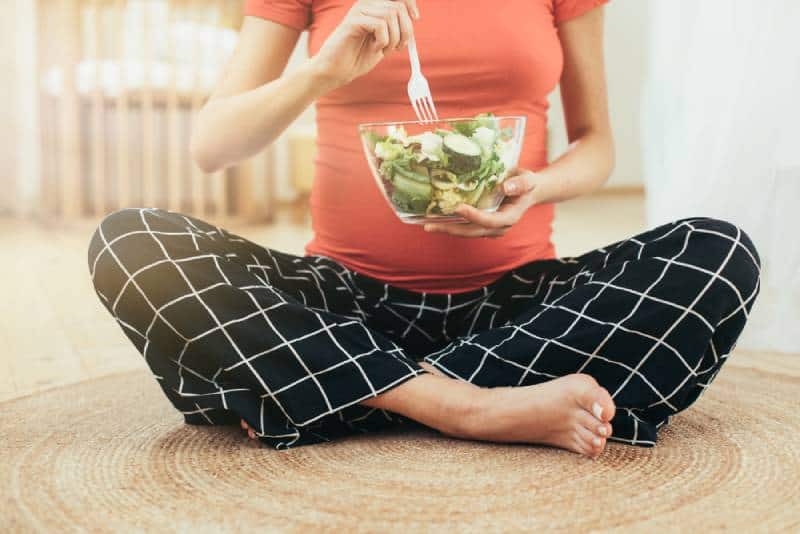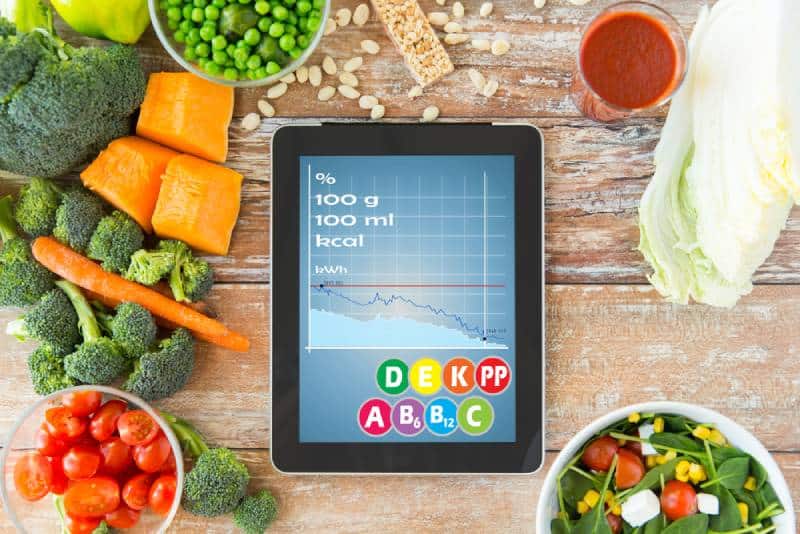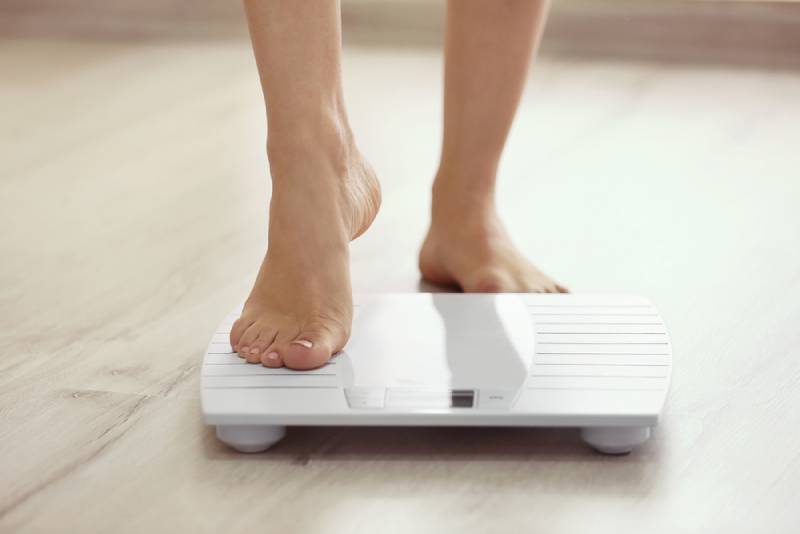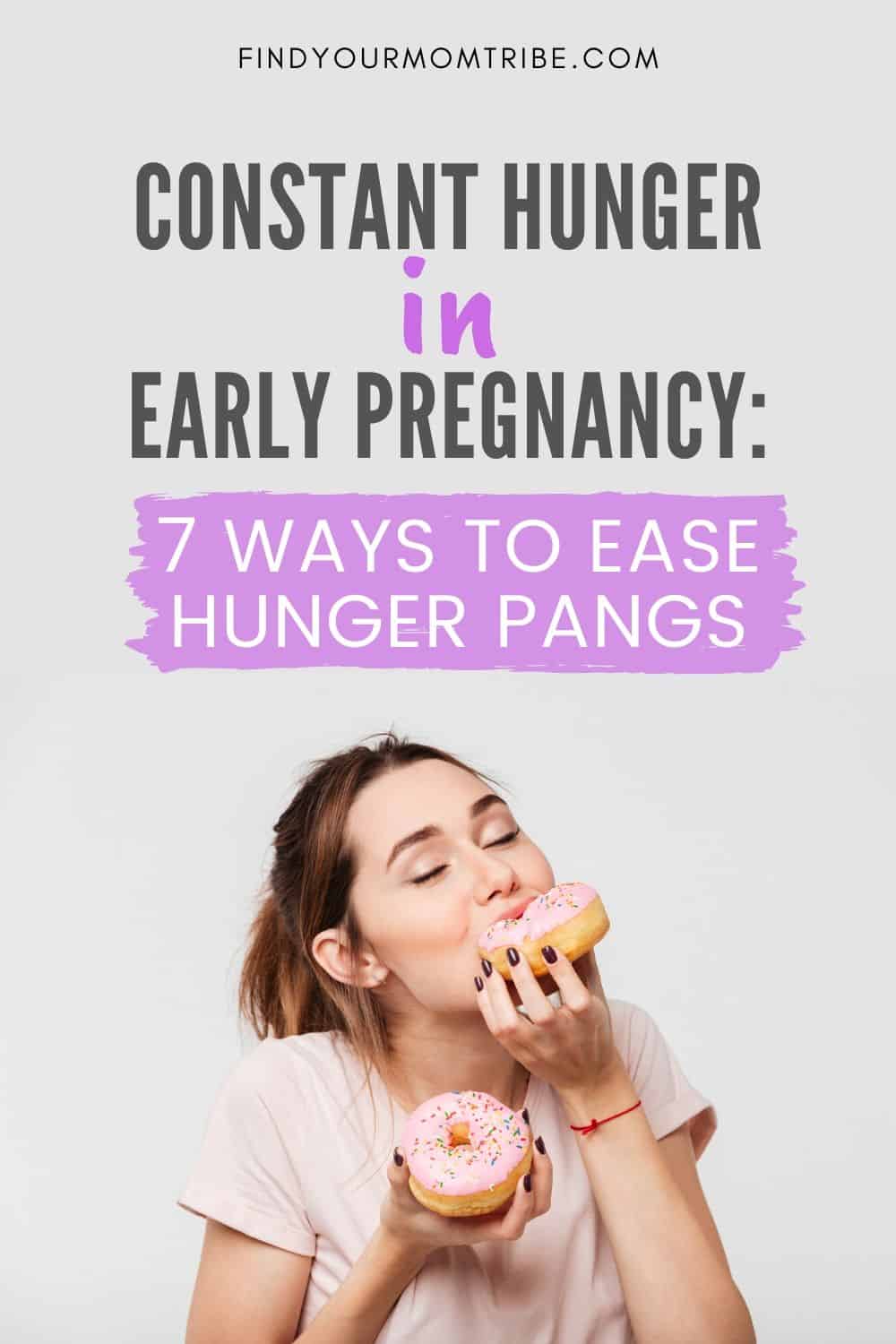One day into the sixth week of your pregnancy and you’ve already had hollandaise sauce, fried pickles, a bag of chips, pumpkin muffins, four helpings of pesto, and ice cream.
You’re not even thinking about gender reveal and baby shower cake; you are currently dealing with constant-hunger-in-early-pregnancy blues if after all that binge eating your belly still feels like a bottomless pit.
Constant hunger in pregnancy is an expected occurrence.
Your body is trying to support the emergence of a new person, while keeping you nourished at the same time.
So what do you do when you start having this powerful urge?
Panic no more and read on to learn the science behind your hunger mystery.
Why do you feel hungry during early pregnancy?
The major cause of increased appetite and feelings of hunger is the demanding fetus growing inside you.
It is possible that your body is using up energy faster than you can give it.
This rapid energy utilization by the body makes you want to munch on food all the time.
You may experience morning sickness and vomit often in the first trimester. And as you throw up, your belly empties fast.
The hunger pangs become insatiable in the second trimester, around the period that morning sickness ends.

Hunger pangs: What are they?
Hunger pangs (aka hunger pains) are the uncomfortable sensations of constant hunger during early pregnancy.
When your tummy is empty, its inner lining gets exposed to and attacked by stomach acids. This irritation causes the feeling of hunger pangs.
Also, you may experience the gnawing stomach sensation when you are dehydrated or sleep-deprived, or have eaten certain low quality foods.
Hunger pangs during pregnancy heighten the desire to eat, especially at odd hours of the day, as your body changes due to hormonal imbalances associated with pregnancy, childbirth, and breastfeeding.
Avoid hunger pangs by making sure your tummy never runs empty during the day.

Will the munchies ever go away?
Pregnancy has a lot of crazy symptoms, from constantly dreaming about giving birth or carrying a baby in your arms to being hungry all the time.
Some expectant mothers notice that their increased appetite tends to subside once they reach the third trimester of pregnancy.
That makes sense, since your growing baby is taking up most of the space that your stomach used to occupy.
At this stage, the baby weighs 4.5 pounds and measures approximately 30 cm from head to bottom.
Their brain and nervous system are fully developed and will continue to accumulate all the fat that will keep him warm after being born.
This means that the baby will continue to grow rapidly as the weeks progress, such that by week 33, your abdomen becomes tight from time to time.
Late in your third trimester, your appetite returns to normal, but you feel full after a few bites.
Now, if you don’t feel like eating full portions, try to chomp on healthy snacks and fruit (hello, delicious pregnancy smoothies!) throughout the day and either side of your meals to get your daily supply of nutrients.
After all, quality not quantity is what a good pregnancy diet is all about.

How to manage constant-hunger-early-pregnancy symptoms
1. Always stay hydrated
The human body is made up of 70% water, and because your body is busy making a baby, it latches on to every water molecule it can find – while needing more.
And that’s why you should drink more fluids and not confuse dehydration with hunger.
Target drinking 12 to 13 cups of water per day and more, especially if it is hot outside or you’re sweating constantly.
Banish your food cravings by trying to cut back on soda intake as this can up your sugar and calorie levels and increase appetite, without any nutritional benefit.

2. Eat a healthy diet
Early pregnancy is a period when foods should be eaten for their nutritional value rather than filling potential.
Eat fresh foods instead of processed ones with disastrous trans fats. Go for energy-packed foods like whole grain and fruit, pairing them with healthy fats.
Here are some highly nutritious foods you can eat to eliminate constant-hunger-early-pregnancy worries:
Whole grains: As opposed to refined grains, whole grains have a lot of fiber and vitamins.
Whole grains are cereals with common varieties being rice, corn, wheat, quinoa, amaranth, and buckwheat.
Dairy products: You need to consume lots of protein and calcium to meet the requirements of a growing fetus, while keeping hunger pain at bay.
Yogurt, in particular, contains high amounts of calcium that supports digestive health.
Legumes: Beans, peas, peanuts, soybeans, chicken peas, and lentils are great for mom and fetus, especially in the difficult first trimester.
Sweet potatoes: This contains fiber, which increases fullness and reduces blood-sugar spikes.
Salmon: This is one most health-conscious people love.
Salmon is very rich in essential omega-3 fatty acids and most pregnant women aren’t getting enough of it in their diet.
Studies have shown that expectant moms who eat 2-3 fatty fish meals per week achieve the recommended intake of omega-3 and increase their blood level.
Eggs: With 77 calories, a large egg is packed with high-quality protein, fat, vitamins, and minerals
Dark, leafy greens: Antioxidant-rich leafy greens like broccoli, spinach, and kale contain vitamins A, C, and K, benefiting both the digestive and immune systems.
Berries: These are a great snack packed with water, healthy carbs, fiber, vitamin C, and antioxidants.
They have low glycemic index (GI) value so should not cause major spikes in blood sugar too.
Berries provide a lot of flavor and nutrition, but don’t rely on them for your daily calorie intake.
Common examples are strawberries, raspberries, blackcurrants, red currants, blueberries, and blackberries.

Our editorial team has made a compilation of these nutritious foods in combos that fit the bill:
- A ripe avocado used as a spread on sandwiches instead of mayo, and on bagels instead of cream cheese.
- Mangos are an excellent sweet snack. Did you know they taste delicious diced with yoghurt or on top of a green salad?
- Prepare extra quinoa and use it as a side dish hot cereal. You could also add it to quiches and muffins.
- Combine walnuts with dried cherries for an on-the-move snack. Chopped walnuts are excellent toppings for salads and ice cream.
- A bowl of multigrain pasta with additional protein, like Barilla Protein Plus and tomato sauce.
- Greek yoghurt with a handful of nuts.
- An apple with 2 teaspoons of peanut butter.
3. Be well stocked
Make sure your fridge and pantry is always stocked with healthy food selections that can eliminate hunger in a flash.
Sliced fruit, avocados, mangoes, cheese sticks, and yoghurt are all quick and simple snacks.
Having healthier food options at hand is better than junk, as you’ll always be forced to eat it at some point.
A full cantaloupe is enough to supply your Daily Value (DV) of vitamin A (5000IU), but the same can’t be said for a bag of chips.

4. Eat small but frequent meals
To effectively deal with constant hunger during early pregnancy, eating small amounts of food regularly throughout the day will certainly keep your stomach full, while keeping hunger under wraps.
Eating huge amounts during each sitting will cause bloating, and acid reflux (heartburn) will make you feel very uncomfortable.

5. Mind your calorie intake
During the first trimester, most moms don’t need the extra calories.
But in the second trimester, you’ll need to amp your calorie profile up to 350 cal more per day, and in the third trimester, 500 cal more than your regular diet.
These values are even doubled when you’re having twins.
Consult your physician to know your specific calorie intake requirements as the values given are for typical pregnancies.

6. Indulge, but reasonably
Everyone has a sweet tooth, and it’s okay to indulge in your favorite pregnancy cravings, as long as you’re sticking to your nutritious meals afterwards.
Consuming one yummy ice cream once a week or your favorite street dish isn’t going to harm you in the least.

7. Avoid alcohol
While you may have learned that it seems harmless to have a glass of wine at dinner or a mug of beer with friends, no one has really ascertained what constitutes safe alcohol amounts during pregnancy.
Alcohol can cause mental and physical disorders in a developing fetus.
It is passed onto the baby, who is less equipped to eliminate alcohol than the mother and retains it much longer, potentially causing damage to the baby’s nervous system.

The dangers of being obese while pregnant
Being plump during pregnancy has ill effects on your health and that of your baby.
Obesity essentially means having a lot of body fat.
The BMI (Body Mass Index) is the profile used to determine if a person is obese.
A BMI of 18.5-24.9 is considered normal, while BMIs ranging from 30-40 is considered obese.

Being obese increases the risk factor of pregnancy complications, including:
- risk of miscarriage
- difficult vaginal delivery
- need for a C-section, risks and recovery process that come with it
- severe high blood pressure (preeclampsia) and damage to other vital organs
- blood clots, especially in your legs, aka deep vein thrombosis (DVT)
- sleep apnea
Managing your weight when pregnant
Every woman experiencing weight gain amid the constant-hunger-early-pregnancy dilemma should not panic.
Maintaining the baby and support structures like the placenta is reason for this.
But every expectant woman gains weight differently; hence, there is no saying how much weight you should gain.
The most important thing is to keep your weight gain within safe levels for you and your baby.
Consider visiting a dietitian to discuss meal plans.
Look up nutritional information on food labels from stores and restaurants to get a sense of how many calories each food contains.
If you’re overweight and consume more calories than normal, then consider cutting back by:
- cutting out condiments;
- replacing unhealthy fats with healthier plant-based versions like olive or coconut oil;
switching pastries for fruits; - filling up on vegetables over traditional carbs;
- eliminating soda and opting for water instead;
- avoiding large amounts of junk food, candy, and chips;
- eating smaller portions of food;
- making a habit of taking a daily prenatal vitamin to ensure that you’re getting all the nutrients that you and your baby need. For example, folate (folic acid) is important, as it helps reduce the risk of birth defects.

Here are some tips for controlling weight gain during pregnancy:
Address weight dilemmas early
Weight gain during pregnancy typically peaks during the second and third trimesters.
A 2014 published study supported by the Institute of Child Health and Human Development found that women who sought and received advice between weeks 7 and 21 of pregnancy were less likely to gain excess weight during the third trimester.
The report also showed that the group of women studied also benefited from weekly support group meetings.
This goes to show how advice from doctors, dieticians, and fellow pregnant women helps to curb excess weight gain.
Cut down on calories
Eating more calories than you burn is one of the principal causes of weight gain. It takes a 3,500 calorie cut to lose 1 pound.
Spread over a week, this translates to a 500 calorie deficit per day. Ideally, pregnant women should eat no less than 1,700 calories’ worth of food per day.
This ensures that you and your baby are sufficiently nourished.
Exercise 30 minutes per day
Some women are afraid of exercising for fear of harming their baby. This notion is false.
While there are some potentially harmful exercises like sit-ups, exercise is beneficial overall.
It helps you maintain your weight, reduce the risk of birth defects, and eases some of the aches and pains you experience during pregnancy.

Some of the best exercises for pregnant women include:
- jogging;
- swimming;
- walking;
- prenatal yoga;
- gardening.
Conversely, avoid any activities that:
- requires maintaining balance, such as riding or skiing;
- are performed in hot environments;
- cause pain;
- make you dizzy;
- are performed on your back (especially after 12 weeks of pregnancy).
READ NEXT:
- Why Is There A Metallic Taste In My Mouth During Pregnancy?
- Pregnancy Hacks For Future Moms: 20 Things You Must Know
Like this article? Please share or pin it for later. You can also stay in the loop and follow us on Facebook, Instagram or Pinterest.

This post contains affiliate links. Please see our full disclosure for more info.

